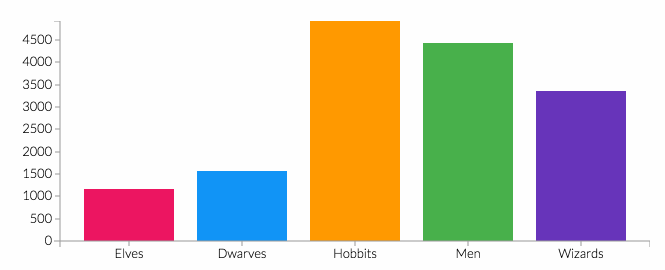KELEKATAN ANAK PADA ORANG TUA DALAM MENINGKATKAN PERKEMBANGAN KOGNITIF DAN HARGA DIRI
DOI:
https://doi.org/10.33853/istighna.v3i2.220Keywords:
Attachment, Child Cognitive, Self-esteem, Parent, Realationship DevelopmentAbstract
Parental attachment does unequivocally have a pivotal relationship with emotion. Parent, especially a mom, is the first and foremost person who has the emotion bond with her child. This bond affects the most of the development of a child. The absent of fulfilment of emotion needs in caregiving of a child, such as a feeling of safety, love and/or compassion, attention, and appreciation, will take an innocent child to a stage of susceptibility that will drive him to be a “vulnerable child†that is a child with fragile personality, frail, fearful, lack of contentment and happiness, et cetera. Parental attachment in the period of growth and development can help challenging tasks so as to trigger cognitive development to the fullest and the growing of sense of self-esteem of a child. This research is using a qualitative approach and analysis, while the type of research is library research.Downloads
References
Adiyanti, M. G. Attachment Behavior in Children –: Perkembangan kelekatan anak. Tesis. (Yogyakarta: Fakultas Pasca Sarjana Universitas Gadjah Mada, 1989)
Chuy, Wing-Yip & Leung, Man-Tak. Adult Attachment Internal Working Model of Self and Other, Self Esteem and Romantic Relationship Satisfaction in Chines Culture: By Multilevel-Multigroup Structural Equation Modelling, Applies Psychology Reading (2016). DoI 10.1007/978-981-10-2796_14
Cassidy, J. “The nature of the child’s ties. Dalam Handbook of attachment: Theory, research, and clinical application.†2nd ed. J. Cassidy & P.R. Shaver (Eds.). (New York: The Guildford Press, 2008)
https://www.universitaspsikologi.com/2018/05/teori-psikologi-perkembangan-attacment-kelekatan.html
https://asysyariah.com/anak-lahir-di-atas-fitrah/
Hari Santoso. Fitrah Based Education (Bekasi, yayasan Cahaya Timur, 2018)
John W. Santrock. Life-Span Development Perkembangan Masa Hidup, (Jakartra: Erlangga, 2002)
Jeanne Ellis Ormrod. Psikologi Pendidikan, (Jakarta: Penerbit Erlangga, 2008)
John W. Santrock. Life Span Development, (Jakarta: Penerbit Airlangga, 2002)
Janice J. Beaty. ObservasiPerkembangan Anak Usia Dini (Jakarta: Kencana Prenda media grup, 2010)
Kompas.com dengan judul "Tips Membangun Harga Diri Anak", https://nasional.kompas.com/read/2012/01/21/1653516/Tips.Membangun.Harga.Diri.Anak.
McConnell, M. & Moss, E. Attachment across the life span: factors that contribute to stability ang change. Australian Journal of Educational & Developmental Psychology
Novan Ardy Wiyani. Psikologi Perkembangan Anak Usia Dini (Yogyakarta: Gava Media, 2014)
Okina Fitriani. Enlightening Parenting (Jakarta: PT Serambi alam semester,2018)
P.J Monk, A.M.P. Knoers, (et.all). Psikologi Perkembangan, (Yogyakarta: Gadjah mada Universyty Phress)
Padang Mursalin, dkk. Psikologi (Jakarta: Penerbit Erlangga, 2016)
S.R.R. Pujiati dan Alzena Masykouri. Mengasah Kecerdasan di usia 0-2 Tahun (Jakarta: Dirjen PAUDNI, 2011)
Teressa M McDevvit, Jeanes Elliss Omrod. Child Development and Education (New Jersey Colombo, Ohio, Merril Prentice Hall, 2002)
Winarti, Kholilawati & Istianti, Hubungan Kelekatan Orangtua Dengan Anak Terhadap Kecerdasan Emosional Remaja laki-laki di SMP, JKKP: Jurnal Kesehatan Keluarga dan Pendidikan, (2014) DOI:doi.org/10.21009/JKKP.012.03
Downloads
Published
How to Cite
Issue
Section
License
Copyright (c) 2020 Amita Diananda

This work is licensed under a Creative Commons Attribution-ShareAlike 4.0 International License.
Copyright Notice
Authors hold and retain copyright and grant the journal right of first publication with the work simultaneously licensed under a http://creativecommons.org/licenses/by-sa/4.0that allows others to share the work with an acknowledgment of the work's authorship and initial publication in this journal.

This work is licensed under a Creative Commons Attribution-ShareAlike 4.0 International License.
















